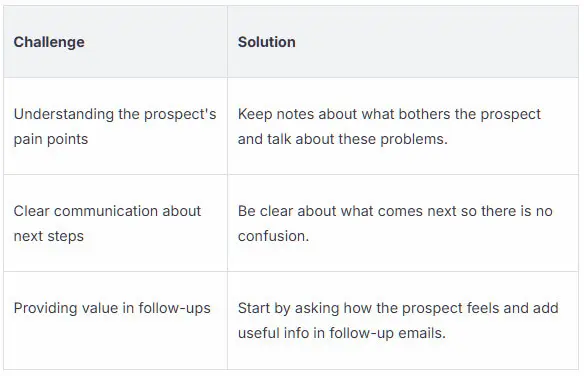Table of Contents

The After-Sales Support Assistant plays a critical role in ensuring customers feel supported long after a purchase is made. In today’s competitive market, timely follow-up is not just a courtesy—it’s a key driver of customer satisfaction, retention, and repeat sales. A well-structured follow-up strategy helps businesses address issues early, gather feedback, and build long-term trust. With a dedicated After-Sales Support Assistant, companies can maintain stronger customer relationships while improving overall service quality and operational efficiency.
After-Sales Support Assistant Core Duties

Administrative and CRM Tasks
When you’re busy handling office tasks, updating CRM systems, and organizing client information, an After-Sales Support Assistant can take over these responsibilities and do them even better. They keep all customer details well-organized, document every interaction, and track each client’s progress. This makes follow-up goals clearer and helps define what success looks like for each case. They also record customer issues and the solutions provided, creating a reliable reference for future support. With modern CRM tools, an After-Sales Support Assistant can automate reminders, personalize messages, and use AI to analyze customer behavior—delivering tailored follow-up content that boosts response rates and drives repeat sales.
Technical Support and Troubleshooting
An After-Sales Support Assistant helps customers by resolving their issues quickly and efficiently. They provide support through help desk services and troubleshoot problems, ensuring smooth solutions. They also manage warranties and clearly explain return or exchange policies. By offering training materials and user guides, an After-Sales Support Assistant ensures customers can make the most of their products. Delivering exceptional service not only keeps customers satisfied but also encourages them to share positive experiences. Their expertise builds trust and fosters long-term customer loyalty.
Coordinating with Teams
An After-Sales Support Assistant collaborates with sales, technical, and product teams to keep customer service running smoothly. They share updates and feedback to resolve issues faster and stay aligned. Using follow-up tools, they check on clients and manage reward programs, ensuring customers feel valued. By coordinating across teams, an After-Sales Support Assistant helps deliver a seamless experience that keeps customers satisfied and loyal.
Follow-Up Strategies to Maintain Client Satisfaction

Proactive Communication
An After-Sales Support Assistant makes clients happy by talking to them first. They do not wait for clients to ask for help. They send updates and reminders before they are needed. They give tips that help clients use products better. They show self-service choices so clients can fix problems quickly. They use AI tools to answer tickets faster. They send alerts when things change or new features are released. They listen to what clients say and use their ideas to improve.
- Use AI to answer tickets faster for clients.
- Show clients self-service choices for quick help.
- Send alerts about new features or changes.
- Listen to feedback and use it to get better.
Personalized Engagement
An After-Sales Support Assistant keeps clients happy by making each chat personal. They remember facts about every client and use CRM notes to track their preferences. They reference past meetings in follow-ups, ask how clients are, and provide help that fits their needs. They send emails with content that matters to each client.
Personal chats help an After-Sales Support Assistant build strong client bonds. Clients feel special when their stories are remembered. They use technology to do this for more clients. Automation saves time and helps them reach more clients, while AI-powered follow-ups allow them to mention details so each message feels unique.
Feedback and Issue Resolution
An After-Sales Support Assistant listens to clients and uses their feedback to keep them happy. They collect feedback from surveys, emails, interviews, and social media. They study this feedback to find ways to improve. They thank clients for every comment and let them know their ideas are being considered. They update products and inform clients about the changes, then ask for feedback again to see if improvements worked.
- Get feedback from surveys, emails, interviews, and social media.
- Study feedback to find ways to improve.
- Thank clients and use feedback to make products better.
- Tell clients about changes and ask if they helped.
Case Study Example:
Linda feels sad about her laptop purchase because she thinks she missed a free software bundle. An After-Sales Support Assistant acknowledges her feelings and clears up the mix-up. They do not ignore her worries. They explain what happened and offer a solution. They follow up to ensure Linda is satisfied. This way, an After-Sales Support Assistant handles complaints effectively and keeps clients happy.

Impact of Follow-Up on Client Satisfaction

Building Loyalty and Trust
When an After-Sales Support Assistant follows up after every service, they build trust. They show clients that they care about their happiness. Personal messages and quick replies make clients feel valued.
- Checking in after each service shows you want clients happy.
- Sending personal notes and clear messages builds strong bonds.
- Automated follow-up emails remind clients you care about their experience.
- Handling complaints with respect can turn upset clients into loyal ones.
Clients trust an After-Sales Support Assistant more when feedback is listened to and acted upon. Happy clients often share their experiences, which helps improve the business’s reputation.
Driving Revenue Growth
An After-Sales Support Assistant helps a business grow by keeping clients happy. When they follow up, clients are more likely to make repeat purchases. Retaining clients costs less than acquiring new ones.
They can drive more repeat sales by sending offers and loyalty rewards. Providing excellent service and timely follow-ups encourages clients to return, strengthens relationships, and supports overall business growth.
Conclusion
Follow-up is more than a task—it’s a way to build trust and lasting customer connections. An After-Sales Support Assistant handles this with care, ensuring clients feel heard and valued. Callnovo provides professional After-Sales Support Assistants who help businesses maintain high client satisfaction, increase repeat purchases, and grow efficiently.
Company Name: Callnovo Inc.
Contact Person: Anita Lee
Email: anita.lee@callnovo.com.cn
Website: www.callnovo.com
Country: Canada
City: Toronto
Explore the benefits of remote After-Sales Support Assistant:
https://callnovo.com/callnovo-multilingual-remote-virtual-assistant/
Ready to get a customized quote?
Click here: https://callnovo.com/request-a-quote/

